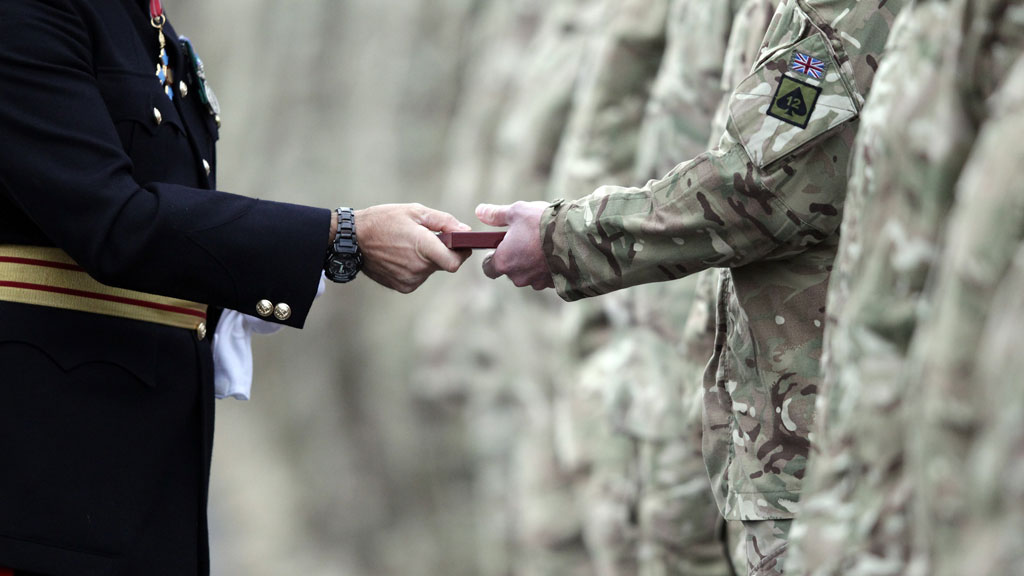Link between armed service and violent crime
Young men are far more likely to commit violent crimes if they have served in the armed forces, according to a major study.

Of around 3,000 military men under the age of 30, more than a fifth had a conviction for violent offences, compared with 6.7 per cent who had not served in the armed forces.
Men who had seen combat in Iraq and Afghanistan were 53 per cent more likely to commit a violent offence than those in non-combat roles.
The study found strong links between combat experience, post-deployment alcohol misuse, traumatic stress and violence.
But military personnel are less likely to commit other crimes than the general population.
In the biggest study of its kind ever undertaken, researchers were given access to police records on almost 14,000 randomly selected men and women who were active or former members of the armed forces, mainly the army.
Our study … found that violent offending was most common among young men from the lower ranks of the army and was strongly associated with a history of violent offending before joining the military. Dr Deirdre MacManus, from King’s College London
The findings, released on the 10th anniversary of the Iraq war, are published in a special issue of the Lancet medical journal.
Study leader Dr Deirdre MacManus, from King’s College London, said: “There has been a lot of media coverage and public debate about violence committed by veterans of the conflicts in Iraq and Afghanistan.
“Our study, which used official criminal records, found that violent offending was most common among young men from the lower ranks of the army and was strongly associated with a history of violent offending before joining the military.”
Offences covered a broad range of acts, from verbal harassment to homicide, but did not include domestic violence.
Aggressive streak

Professor Sir Simon Wessely, co-director of the Centre for Military Health Research at King’s College London, who co-authored the study, said an aggressive streak could be useful in a soldier.
“Some people with aggressive dispositions make very good soldiers, that’s the nature of the game.”
He added: “My own view, and the view of many people in this area, is that you meet a lot of people in the armed forces who you’re glad are in the armed forces, and it’s doing them a lot of good.”
But Sir Simon said the vast majority of soldiers returning from tours of duty in combat zones never got into trouble.
“Overall you must remember that of those who serve in combat, 94 per cent of who come back will not offend.”
Comprehensive support
A Ministry of Defence spokesman said: “We are committed to supporting members of our armed forces and their families as they return to civilian life post deployment.
“That is why we funded this research and have comprehensive mental health support available.
“This report recognises that the vast majority of service personnel make this adjustment successfully and are not more likely to commit a violent offence post deployment.
“There is only an increased risk of 2 per cent when compared to the general population.”
-
Latest news
-
‘I violated my moral compass working for Trump,’ former lawyer testifies3m

-
Working class creatives in film and TV at lowest level in decade5m

-
Israeli police investigating attack on Gaza aid convoy4m

-
Biden announces major tariff increase on Chinese-imported green tech3m

-
‘If NHS can afford it, people with obesity should have Semaglutide,’ says weight loss expert5m

-




